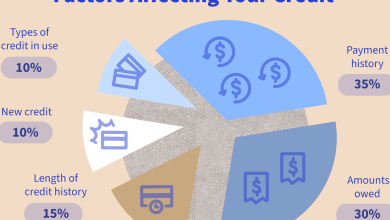5 Tax-Free Bonds in India You Should Know About

Are you looking for ways to maximize your return on investment in India? Tax free bonds are a fantastic way to do so. Learn which bonds offer the most potential recovery with the least risk to make informed investment decisions.
India’s most popular tax-free bonds and describes their features, benefits, and threats.
Introduction to Tax-Free Bonds
Tax-free bonds are debt instrument that offers tax benefits to the investor. Public sector companies and government-backed entities issue these bonds. The interest earned on these bonds is exempt from income tax.
Investment in tax-free bonds is a good option for those in the high-income tax bracket and looking for a safe investment option with reasonable returns. The interest rate on these bonds is generally higher than that offered on other fixed-income instruments such as bank deposits and government securities.
Advantages of Investing in Tax-Free Bonds
The most significant advantage of investing in tax-free bonds is that the investor does not have to pay any income tax on the interest earned. This makes them an attractive investment option for those in higher income tax brackets.
Another advantage of these bonds is that they offer relatively high-interest rates compared to other fixed-income instruments such as bank deposits and government securities. This makes them a good option for those who are looking for better returns on their investment.
Disadvantages of Investing in Tax-Free Bonds
One of the most significant disadvantages of investing in tax-free bonds is that they are less liquid than other investments such as stocks and mutual funds. This means it may be challenging to sell these bonds before the maturity date and get your money back quickly in case of an emergency.
Benefits of Investing in Tax-Free Bonds
When it comes to investments, most people are always looking for options that can get them good returns without worrying about taxation. And if you’re one of those people, tax-free bonds in India are something you should know about. Here are some of the benefits of investing in these types of bonds:
1. The interest earned from tax-free bonds is exempt from income tax. This means that you can make higher returns than other taxable investments.
2. Tax-free bonds have a fixed interest rate, which makes them a very predictable and stable investment option.
3. These bonds have a long tenure (usually 10-15 years), which makes them ideal for long-term goals such as retirement planning.
4. Since the interest income is exempt from tax, investing in tax-free bonds can help you save on your overall tax liability.
5. These bonds are backed by the government, making them a safe and secure investment option.
6. Tax-free bonds are also very liquid, meaning you can easily convert them into cash whenever necessary.
Types of Tax-Free Bonds Available in India
There are many different tax-free bonds available in India, each with its unique benefits.
Here are some of the most popular types of tax-free bonds:
1. Municipal Bonds: Municipal bonds are issued by local governments and offer investors a way to support their community while earning tax-free interest.
2. State Development Loans: These bonds are issued by state-level development banks and offer tax-free interest on investments up to Rs. 10 lacks per year.
3. Infrastructure Bonds: Infrastructure bonds are a type of development bond that helps finance infrastructure projects such as roads, bridges, and airports. These bonds offer tax-free interest on investments up to Rs. 20 per year.
4. Corporate Bonds: Corporate bonds are issued by companies and offer investors a chance to earn a fixed rate of return on their investment. Interest from corporate bonds is taxed at the marginal rate, but many companies offer special rates for senior citizens that make them effectively tax-free.
5. High-yield Savings Accounts: High-yield savings accounts are a great way to earn tax-free interest on your savings. Many banks offer special rates for senior citizens, making them an ideal option for those looking for a safe and effective way to grow their money without paying taxes on the interest earned.
Comparison of 5 Popular Tax-Free Bonds
The table below compares the returns, tenure, and features of 5 popular tax-free bonds in India:
Tenure:
- Five years
- Seven years
- Ten years
Interest Rate:
- 7.35% p.a.
- 7.59% p.a.
- 7.80% p.a.
maturing on 31st March, 2027; 7th April, 2029 and 10th January, 2030 respectively.annul) for senior citizens; means the interest earned is exempt from income tax as per sections 10(15)(i)(v), 10 (15) (iv)(h), and 10 (15) (j) of the Income Tax Act 1961 respectively; no TDS is deducted; interest payment frequency is half-yearly; and lock-in period is five years from the date of allotment for all investors.]
Understanding the Risks Involved with Investing in Tax-Free Bonds
When it comes to investing in tax-free bonds, you should know a few things to minimize the risks involved.
Here are some key points to keep in mind:
1. Tax-free bonds are long-term investments, so you should be prepared to tie up your money for several years.
2. There is always the risk that the bond issuer may default on their payments, so research the creditworthiness of any company before investing.
3. The interest payments on tax-free bonds are fixed, so if inflation increases, the actual value of those payments will decrease.
4. Finally, remember that capital gains from selling tax-free bonds are subject to taxation, so factor that into your overall investment strategy.
Conclusion
Tax-free bonds can be a fantastic investment tool if you have the proper knowledge and awareness. Having an understanding of how tax-free bonds work, as well as knowing some of the best ones to invest in, can help make your investments more lucrative. We hope this article has helped you gain that knowledge and inspired you to add some tax-free bonds to your investing strategy. Have you ever invested in any of these five tax-free bonds? Could you share your experience with us?





